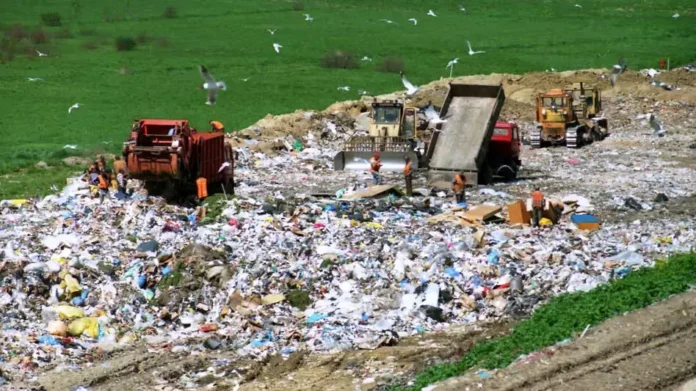In the face of a major land shortage affecting the Khasi-Jaintia Hills region, the Meghalaya government has launched a crucial initiative urging local villages to set up local landfills. This proactive measure is designed to address the growing waste management challenges in the region and mitigate the environmental impact of waste accumulation.
Background of the Land Shortage Crisis
The Khasi-Jaintia Hills region in Meghalaya has been grappling with an acute land shortage, exacerbated by rapid urbanization, population growth, and limited land availability. This shortage has become a pressing issue, impacting various aspects of life in the region, including waste management.
- Urbanization and Population Growth: The increasing population in the Khasi-Jaintia Hills has led to higher waste generation, putting additional strain on the already limited land resources. Urban expansion has further reduced the availability of land for waste disposal.
- Limited Land Availability: The mountainous terrain of the Khasi-Jaintia Hills, combined with the traditional land ownership practices, has made it challenging to find suitable areas for large-scale waste management facilities.
Given the constraints imposed by the land shortage, the Meghalaya government has identified local landfills as a viable solution to manage waste more effectively at the community level. Key reasons for promoting local landfills include:
- Efficient Waste Management: Local landfills can help manage waste more efficiently by reducing the distance waste must travel, thereby minimizing transportation costs and associated environmental impacts.
- Reduced Environmental Impact: By establishing smaller, localized landfills, villages can reduce the strain on central waste management systems and mitigate the environmental impact of waste disposal.
- Community Involvement: Creating local landfills encourages communities to take an active role in waste management, promoting responsible waste disposal practices and enhancing community ownership of environmental initiatives.
The Meghalaya government has outlined several key guidelines and initiatives to support the creation of local landfills in response to the land shortage:
- Technical Support and Training: The government is providing technical support and training to village leaders and local authorities on how to design, set up, and manage local landfills effectively. This includes guidance on proper waste segregation, landfill construction, and maintenance.
- Financial Assistance: To assist villages in setting up local landfills, the government is offering financial incentives and subsidies. This support aims to alleviate the financial burden on communities and encourage the adoption of sustainable waste management practices.
- Monitoring and Compliance: The government has established monitoring mechanisms to ensure that local landfills adhere to environmental regulations and best practices. Regular inspections and compliance checks will be conducted to maintain standards and prevent potential issues.
Impact on Waste Management in Khasi-Jaintia Hills
The establishment of local landfills is expected to have several positive impacts on waste management in the Khasi-Jaintia Hills region:
- Improved Waste Disposal: Local landfills will provide an organized and controlled method for waste disposal, reducing the incidence of open dumping and unauthorized waste sites.
- Enhanced Environmental Protection: By managing waste at the community level, the local landfills will help protect natural resources and prevent contamination of land and water sources.
- Community Empowerment: The initiative will empower local communities to take charge of their waste management practices, fostering a sense of responsibility and environmental stewardship.
While the local landfill initiative presents a promising solution, several challenges and considerations must be addressed:
- Land Use Conflicts: Finding suitable land for local landfills may involve navigating conflicts with other land uses, such as agriculture or housing. Effective planning and community engagement will be essential to address these conflicts.
- Waste Management Practices: Ensuring that local landfills are managed according to environmental standards will require ongoing education and oversight. Villages will need to adopt best practices for waste segregation, recycling, and landfill maintenance.
- Long-term Sustainability: The long-term sustainability of local landfills will depend on their capacity to handle waste effectively and the ability of communities to maintain and manage these facilities over time.
In response to the land shortage in the Khasi-Jaintia Hills, the Meghalaya government’s initiative to encourage the creation of local landfills represents a strategic approach to addressing the region’s waste management challenges. By promoting localized solutions and supporting community involvement, the initiative aims to enhance waste disposal practices and protect the environment.


